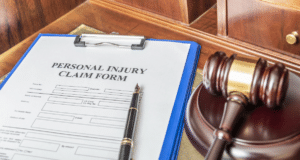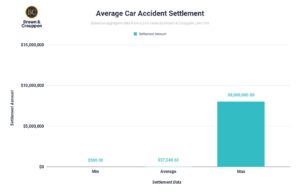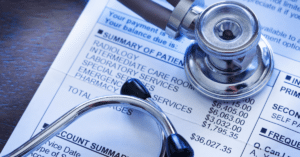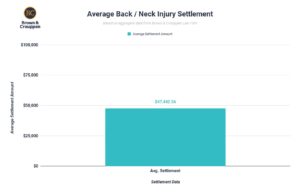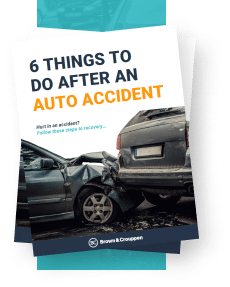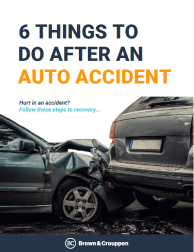

Use our legal checklist to learn what to do after an accident and understand key legal considerations for recovering financial compensation.
1. Pursue an Insurance Claim
Filing a lawsuit should be the last step a car owner takes, not the first. Even small court claims can take months to resolve. Look first for insurance coverage.
- The at-fault driver: This is the first place to look. If the at-fault driver has insurance, there should be at least some coverage for property damage.
- Your own insurance: Take a look at your own policy to see what coverage is available.
- “Full” coverage: If you carry comprehensive and/or collision, your own policy can cover the damage to your car.
- “Liability-only” policies: If your policy is just the state minimum, you do not have any coverage for property damage to your own vehicle.
- Any at-fault non-driver: Occasionally, accidents happen for reasons beyond the control of any driver. Animal strikes, dangerous potholes, and other circumstances can cause significant damage to both a vehicle and the occupant. Whether there will be insurance coverage will depend upon the unique facts of each case.
2. Consult a Property Damage Attorney
If insurance policies do not cover property damage or your claim has been denied, speak with an attorney who handles property damage claims.
Here’s how an attorney can help:
- Review your case to determine who’s at fault and the appropriate course of legal action (if any).
- Gather evidence to support your case.
- Negotiate a settlement for property damage or pursue litigation.
It’s important to note that if you have suffered property damage due to an accident and have not suffered any injuries, you will not be eligible to file a personal injury claim. In other words, if you were not physically harmed in a collision, you have no personal injury claim to pursue.
However, you still may be able to recover compensation with the help of an attorney or by filing a lawsuit.
3. File a Lawsuit
In situations where insurance coverage is either unavailable or inadequate, vehicle owners often explore whether they should file a lawsuit.
Small claims court: Small claims can be a viable option if the damage to your vehicle is within your jurisdiction’s small claims court amount. Each state has its own small claims limit. The benefits to small claims include lower filing fees, streamlined legal proceedings, and no need to hire an attorney.
Associate / Circuit court: A potential lawsuit becomes much more difficult if you are priced out of small claims. Associate courts or circuit courts, which have jurisdiction over larger amounts, are not user-friendly. If damages exceed the limit of a small claim, here are your options:
- Hiring an attorney: Although hiring a lawyer may seem like an easy solution, many drivers quickly learn that lawyers who handle “property damage only” claims tend to charge by the hour. There are situations where this is a smart option, but for many drivers, the cost of paying for an attorney outweighs any potential benefit.
- Going “pro se”: While you can represent yourself (AKA “pro se”), you will be expected to understand the ins and outs of legal procedures just as a licensed attorney has to.
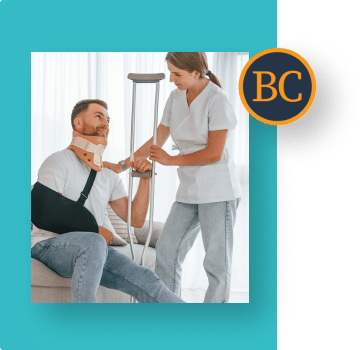
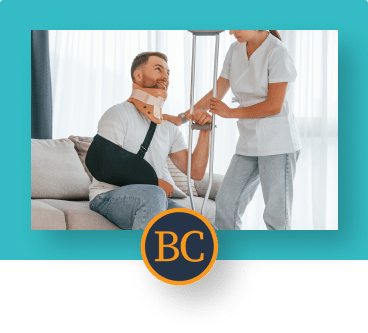
Were you injured in an accident due to someone else’s negligence? Get legal help from the most effective injury law firm in the Midwest.
Frequently Asked Questions
If I was at fault, can I still recover compensation for property damage?
If you caused the accident, your own insurance company may be able to help cover the costs of your property damage. However, it will depend on the type of coverage you carry. If all you carry is liability, you’ll have to pay for your own repairs. If you have an insurance policy that includes collision, you will pay the deductible and your policy will cover the rest.
Is the other driver responsible for property damage if they are at fault?
If the accident was caused by another driver, their insurance company should pay to repair your car. If that driver is uninsured, you can file a claim with your own policy if you carry collision coverage.
If the driver that caused the accident is uninsured and you only carry liability, you will have to pay for your own repairs. Uninsured motorist coverage only applies to injuries, not to property damage.
How is the damage to my car calculated after an accident?
After deciding fault, an insurance company will weigh the cost of the repair against the fair market value of your car. If the cost of the repair is close to or exceeds the fair market value, the insurance company may decide to total your car rather than repair it.
If a vehicle is totaled, the insurance company will issue a check to the legal owner of the vehicle after satisfying any liens on the vehicle.
- The owner vs. the bank. Many owners receive an unpleasant surprise when their car gets totaled—if there is a loan on the vehicle, the bank gets paid first. GAP insurance can cover the difference if you have it. If you don’t have GAP insurance, you are unfortunately on the hook for the balance of the loan.
- The owner vs. the driver. Many drivers use a vehicle that doesn’t legally belong to them. For example, if the car you drive is in your mother’s name, and it gets totaled, the insurance company will reimburse her, not you.
If your vehicle will be repaired, here are some things you should know.
- You are entitled to your own estimate. You can and should get your own estimate to determine how much damage your car has sustained.
- The insurance company is entitled to their own estimate. The insurance company can accept your estimate if they choose to do so, but more often, they will send out an adjuster, take the vehicle to a specific auto body shop, or both.
- You can get your vehicle repaired anywhere you want, but the insurance company will only pay for the estimate they deem appropriate. Insurance estimates typically come in lower than the estimates that drivers receive. This does not necessarily mean that the insurance company is skimping on repairs. Often, it is simply a reflection of the lower labor rates that insurance companies negotiate with their chosen auto repair shops.
- “Betterment.” Betterment is another factor that can lower the insurance company’s estimate of a repair. If you have an older model vehicle that is being repaired with brand-new parts, the insurance company may claim that the repairs will increase the value of your vehicle and reduce the value of your claim. The reduction should be limited to the difference between a used part and a new part.
- The insurance company can legally use aftermarket parts for your repairs. The law does require that any aftermarket parts installed on your car be clearly identified in the estimate. The Federal Trade Commission says that aftermarket parts should not void any warranty.
Can rental car costs be reimbursed after a car accident?
If you have no other vehicle available to you while your car is being repaired (or totaled), you may be entitled to have the costs of a car rental reimbursed. This can happen one of two ways.
- If you go through your own policy. Car rental is often not included in “full coverage” policies. It is usually an add-on that increases the monthly premium.
- If you go through the policy of the other driver. Even if the other driver was at fault for the accident, that driver’s insurance policy is not required to pay upfront for your car rental. Although some companies choose to do so, it is more often the case that the company will reimburse you after the fact. Insurance companies cap the daily rental rate they will reimburse, so go with the least expensive option that suits your needs.

